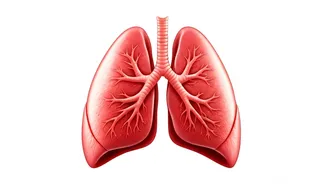Food vs. Lungs
The food we consume significantly affects our overall health, extending to the lungs. Certain foods can cause inflammation, mucus production, and other
conditions that impede respiratory function. It's crucial to be aware of how various dietary choices influence our lung health and well-being. By making informed decisions about our diet, we can significantly reduce the risk of respiratory problems and promote improved breathing. Incorporating nutrient-rich foods that support respiratory health, while reducing consumption of items that may cause harm, can dramatically enhance your lung function. This includes adjusting meal planning, making smarter decisions when eating out, and becoming more mindful of daily consumption habits.
Processed Foods Beware
Processed foods are often packed with additives, preservatives, and unhealthy fats that trigger inflammation throughout the body, including the lungs. These substances can exacerbate existing respiratory conditions and make breathing more difficult. High levels of sodium, frequently found in processed foods, can lead to fluid retention, potentially causing swelling and further impacting lung function. Regular consumption of processed foods can also contribute to a weakened immune system, making your lungs more susceptible to infections. It's generally a wise choice to limit or avoid packaged snacks, fast food, and heavily processed meals, and instead opt for fresh, whole foods that support overall health.
Dairy's Potential Impact
For some individuals, dairy products can increase mucus production in the respiratory system, leading to congestion and breathing difficulties. This is especially true for those with asthma, allergies, or other respiratory sensitivities. Dairy contains lactose, a sugar that some people struggle to digest, which can trigger inflammation and mucus build-up. While not everyone is affected, it's worth assessing how dairy impacts your body, especially if you experience respiratory symptoms. Considering alternatives like almond, soy, or oat milk might be beneficial. Pay attention to your body's response after consuming dairy, and consider whether it correlates with any increase in respiratory discomfort. Consulting with a healthcare professional can provide more clarity on specific dietary needs.
Sugary Drink Challenges
Sugary drinks, including sodas, sweetened teas, and fruit juices, contribute to overall inflammation in the body and can directly impact lung health. High sugar intake can also weaken the immune system, making the lungs more vulnerable to infections. Excess sugar can worsen conditions like asthma, potentially leading to increased inflammation and breathing problems. Moreover, sugary drinks often lack essential nutrients and offer empty calories, which can lead to weight gain, further taxing the respiratory system. It’s advisable to opt for water, unsweetened beverages, or herbal teas to help support both respiratory health and overall health. Reducing sugar consumption is an excellent step towards improved lung function and a healthier lifestyle.
Fried Foods' Respiratory Effects
Fried foods are typically cooked in oils that produce harmful compounds, including trans fats, when heated to high temperatures. These compounds can cause inflammation in the lungs and throughout the body. Fried foods are often high in calories and can contribute to weight gain, placing additional stress on the respiratory system. The process of frying can also release chemicals that irritate the airways. The saturated fats in fried foods are linked to various health problems, including respiratory issues. Making a conscious effort to limit fried foods and opting for healthier cooking methods, such as baking, grilling, or steaming, can significantly benefit lung health and overall well-being.
Salty Food Caution
Excessive sodium intake can cause water retention, which may lead to swelling in the lungs and hinder breathing. High-sodium foods often contribute to elevated blood pressure, which can worsen respiratory conditions. Processed foods, fast food, and salty snacks are significant sources of sodium. It's crucial to be mindful of sodium content when selecting foods and to read nutrition labels carefully. Reduce your intake of these foods and look for alternatives that are lower in sodium, such as fresh fruits, vegetables, and home-cooked meals. Choosing fresh ingredients and preparing meals at home can provide greater control over sodium levels, supporting healthier lungs and promoting overall well-being.
Refined Grains Implications
Refined grains, like white bread and white rice, lack the fiber and nutrients found in whole grains, often causing inflammation in the body, which can also affect the lungs. These grains can contribute to elevated blood sugar levels, impacting respiratory function. Consuming refined grains provides minimal nutritional benefits while potentially worsening conditions like asthma and other respiratory ailments. Instead of refined grains, opt for whole-grain alternatives like brown rice, quinoa, and whole-wheat bread. These choices provide essential nutrients, fiber, and antioxidants that support overall health and promote optimal lung function. Making these small dietary adjustments can contribute to significant health benefits.














